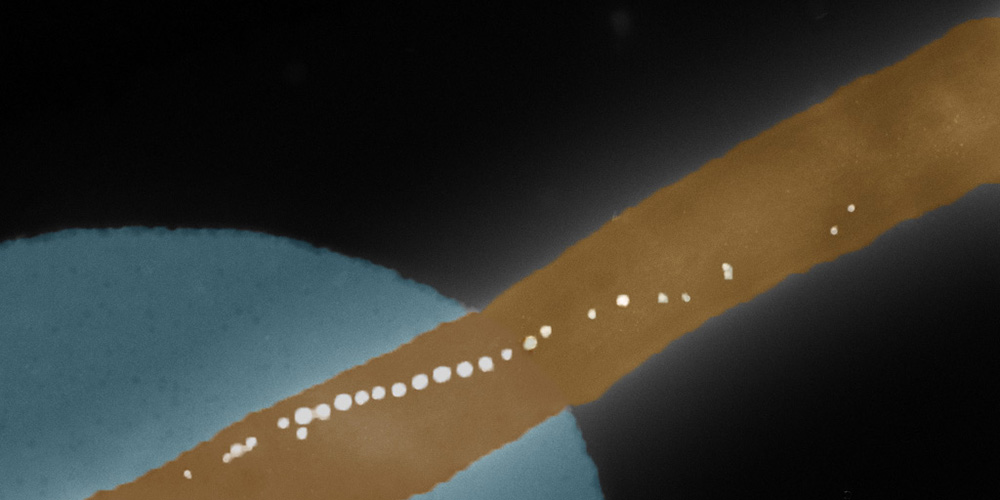Quantum Physics in a Semiconductor
Semiconductor technologies such as those used in semiconductor circuits or semiconductor lasers are the building blocks of our computers and the foundation of high-speed data communications on the Internet. To speed them up, ever faster components have to be developed to pack a larger number of transistors onto the surface of a semiconductor chip. Nanoscale components developed in recent years and the resulting nanostructuring of semiconductors are not only a breakthrough for conventional electronics, but for quantum science as well.
The scientific work of Prof. Richard J. Warburton in the Department of Physics has its background in these semiconductors and, in particular, the optics of semiconductorhetero- and nanostructures. The professor of experimental physics is in charge of the Nano-Photonics Group founded by him. The group is currently working on quantum physics projects involving nanostructured semiconductor materials.
«Our mission is to research and use the quantum physics of interactions between solid materials and light with the objective of constructing coherent spins in semiconductors, producing usable quantum light as well as generating quantum interleaving,» explains Richard Warburton.
They are also attempting things like capturing and manipulating individual and elementary quantum units such as individual electrons or light particles (photons) in the material world. The spin or intrinsic angular momentum of a single electron is an ideal degree of freedom for quantum manipulation in a semiconductor material. Accordingly, Warburton’s group is also capturing individual electrons in order to control their spins. This is done using lasers that cause the spins to occur in a certain direction and can change them, ultimately making it possible to identify the result of the manipulation.
Quantum computers – supercomputers of the future
Richard J. Warburton is part of the National Centre of Competence in Research (NCCR) SPIN: Spin Qubits in Silicon, which he was leading from January 2020 to February 2021. The aim of this consortium of research groups at the University of Basel, IBM Research Zurich, ETH Zurich and EPF Lausanne, is the development of an exceptionally scalable technology to enable the construction of a universally usable quantum computer. The Swiss National Science Foundation (SNSF) is supporting the NCCR with 17 million in the first funding phase from 2020 to 2023.


